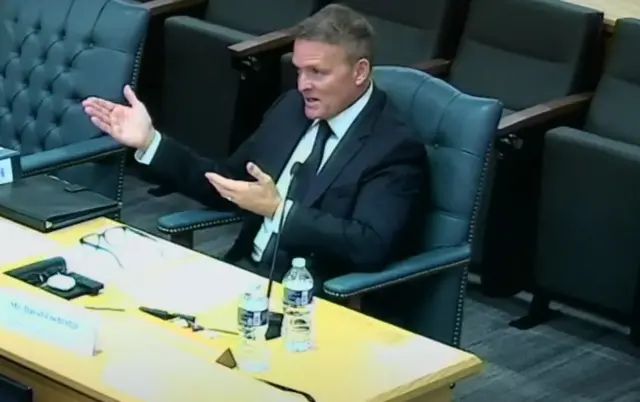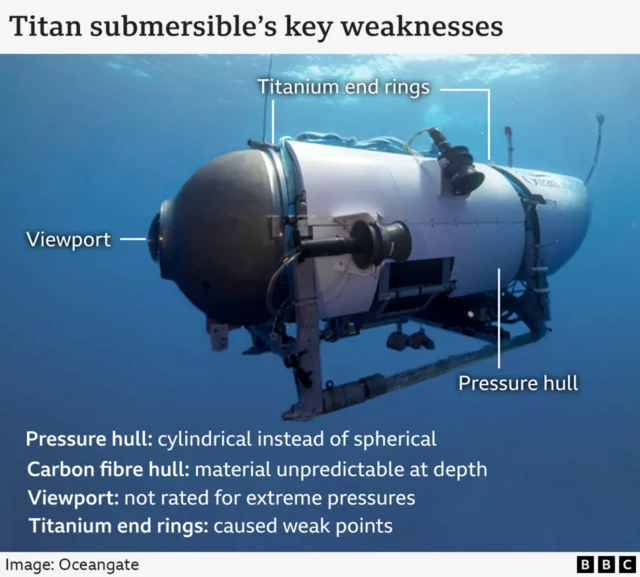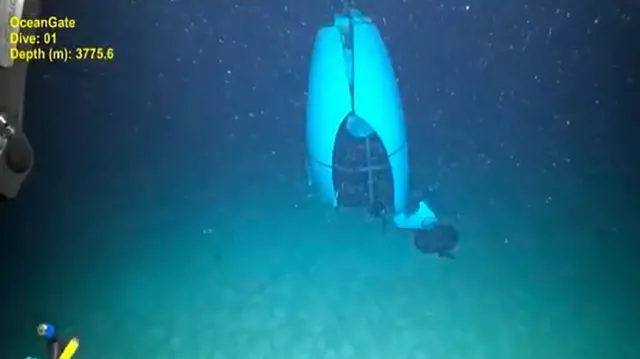Investigators hear about years-long safety concernspublished at 22:43 BST 17 September 2024
 Caitlin Wilson
Caitlin Wilson
Live editor
The second day of hearings about what went wrong in the Titan submersible disaster last year focused on testimony from former OceanGate employee David Lochridge.
He had raised concerns about the sub since 2018, including over the materials it was made out of, but was fired from the company.
It was "inevitable" something would eventually go wrong, Lochridge told investigators on Tuesday.
The hearings are set to resume on Wednesday, but we are closing our live coverage for now.
In the meantime, you can read more about the story below:
Whistleblower testifies Titan sub tragedy was 'inevitable'
'All good here': Titan sub's last messages before implosion
Titan sub disaster: Five key questions that remain
The writers on this page were Lana Lam, Tinshui Yeung, Imogen James, Sophie Abdulla, Jessica Murphy and Jacqueline Howard.
It was edited by Jamie Whitehead, Nathan Williams, Aoife Walsh and me.
Thank you for joining us.






